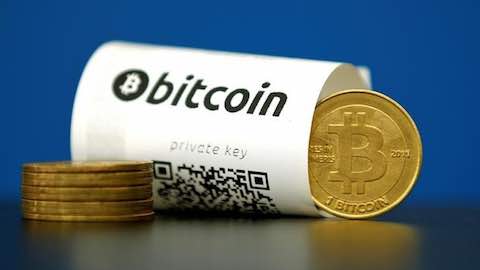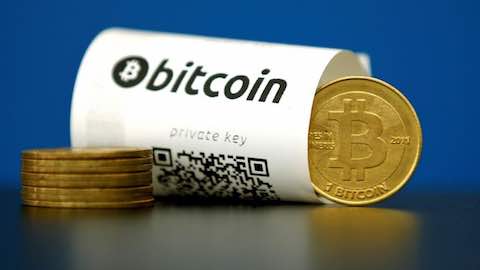- MENU
- HOME
- SITE
- JOBS
- VIDEOS
- WORLD
- MAIN
- AFRICA
- ASIA
- BALKANS
- EUROPE
- LATIN AMERICA
- MIDDLE EAST
- United Kingdom
- United States
- Argentina
- Australia
- Austria
- Benelux
- Brazil
- Canada
- China
- France
- Germany
- Greece
- Hungary
- India
- Indonesia
- Ireland
- Israel
- Italy
- Japan
- Korea
- Mexico
- New Zealand
- Pakistan
- Philippines
- Poland
- Russia
- South Africa
- Spain
- Taiwan
- Turkey
- USA
- BUSINESS
- WEALTH
- STOCKS
- TECH
- HEALTH
- LIFESTYLE
- ENTERTAINMENT
- SPORTS
- METRO
- INDUSTRY
- Agriculture
- Airline
- Auto
- Beverage
- Biotech
- Book
- Broadcast
- Cable
- Chemical
- Clothing
- Construction
- Defense
- Durable
- Engineering
- Electronics
- Firearms
- Food
- Gaming
- Healthcare
- Hospitality
- Leisure
- Logistics
- Metals
- Mining
- Movie
- Music
- Newspaper
- Nondurable
- Oil & Gas
- Packaging
- Pharmaceutic
- Plastics
- Real Estate
- Retail
- Shipping
- Sports
- Steelmaking
- Textiles
- Tobacco
- Transportation
- Travel
- Utilities
- COMPANIES
- 3M (MMM)
- AT&T (T)
- AIG (AIG)
- Alcoa (AA)
- Altria (MO)
- American Express (AXP)
- Apple (AAPL)
- Bank of America (BAC)
- Boeing (BA)
- Caterpillar (CAT)
- Chevron (CVX)
- Cisco (CSCO)
- Citigroup (C)
- Coca Cola (KO)
- Dell (DELL)
- DuPont (DD)
- Eastman Kodak (EK)
- ExxonMobil (XOM)
- FedEx (FDX)
- General Electric (GE)
- General Motors (GM)
- Google (GOOG)
- Hewlett-Packard (HPQ)
- Home Depot (HD)
- Honeywell (HON)
- IBM (IBM)
- Intel (INTC)
- Int'l Paper (IP)
- JP Morgan Chase (JPM)
- J & J (JNJ)
- McDonalds (MCD)
- Merck (MRK)
- Microsoft (MSFT)
- P & G (PG)
- United Tech (UTX)
- Wal-Mart (WMT)
- Walt Disney (DIS)
- RSS
- iHaveNet.com: Commodities
Agriculture | Airline | Auto | Beverage | Biotech | Book | Broadcast | Cable | Chemical | Clothing | Construction | Defense | Durable | Engineering | Electronics | Firearms | Food | Gaming | Healthcare | Hospitality | Leisure | Logistics | Metals | Mining | Movie | Music | Newspaper | Nondurable | Oil & Gas | Packaging | Pharmaceutic | Plastics | Real Estate | Retail | Shipping | Sports | Steelmaking | Textiles | Tobacco | Transportation | Travel | Utilities
3M (MMM) | AT&T (T) | AIG (AIG) | Alcoa (AA) | Altria (MO) | American Express (AXP) | Apple (AAPL) | Bank of America (BAC) | Boeing (BA) | Caterpillar (CAT) | Chevron (CVX) | Cisco (CSCO) | Citigroup (C) | Coca Cola (KO) | Dell (DELL) | DuPont (DD) | Eastman Kodak (EK) | ExxonMobil (XOM) | FedEx (FDX) | General Electric (GE) | General Motors (GM) | Google (GOOG) | Hewlett-Packard (HPQ) | Home Depot (HD) | Honeywell (HON) | IBM (IBM) | Intel (INTC) | Int'l Paper (IP) | JP Morgan Chase (JPM) | J & J (JNJ) | McDonalds (MCD) | Merck (MRK) | Microsoft (MSFT) | P & G (PG) | United Tech (UTX) | Wal-Mart (WMT) | Walt Disney (DIS)
-
Today individuals can invest in commodities through an increasing number of ETFs and mutual funds that employ sophisticated strategies. But before jumping into this sector, experts say it's important for investors to understand some of the peculiarities in the commodities market. One of the most problematic is a phenomenon called contango. Here's what you need to know
-
During times of uncertainty, investors flock to gold. But times aren't as uncertain as they used to be. Granted, unemployment remains high, and there is unrest in countries in the Middle East like Egypt. But the fear of a double-dip recession has mostly subsided in the United States and the economy is expanding again. Is this is a short-term selloff or a major turning point for gold prices?
-
Now that gold's 10-year bull run is official history, you'd think the buzz about the precious metal's promise might finally buzz off. But if you've been anywhere in shouting distance of financial news lately, you'll know that the bull calls are far from over
-
Gold and silver have benefited from investors worried about a currency crisis. Industrial metals like platinum and palladium have come roaring back in the midst of a slow but fairly steady global economic recovery. Until recently, it was only possible to invest in these metals separately. Now there's an ETF, Physical Precious Metal Basket Shares (symbol GLTR), that tracks all four
-
The concept 'good as gold' is polished to a fine shine from time to time by negative factors such as volatile currencies, weak financial markets, bank failures and instability due to political, economic and financial unrest. Historically considered a safe haven, gold's performance in recent years has benefitted from all those forms of global financial pestilence
-
A lot has been written in recent days about the economic impact of drastic devaluation of the Venezuelan currency announced by Venezuela's authoritarian-populist President Hugo Chávez. But the measure's political impact may be just as important, if not more.
-
The last decade has seen an extraordinary shift in expectations for the world energy system. After a long era of excess capacity prices for oil and most energy commodities have risen sharply and become more volatile. As such, a crisis is looming which will be difficult to resolve.
-
Gold, which thrives when investors are fearful, tends to stall or sink when markets are strong or when crises settle down. Gold, however, is hardly the only precious metal out there. With that in mind, here's a guide to how three other metals -- platinum, palladium, and silver -- fit into investors' portfolios.
-
While the Euro has taken a hit, gold has shot up to all-time highs, above $1,200 per ounce. Investors must decide for themselves whether or not commodities like gold belong in their portfolio, but for those who want to know what all the fuss is about, here are a few things to know
-
Global crude oil prices hit an 18-month high as the average price of a gallon of regular gasoline reached $2.85, the highest it's been since October 2008. This is both good news and bad news. The bad news is that the economic recovery could slow if gas prices rise too fast. The good news, though, is that the United States is almost certainly not headed toward another summer of $4-a-gallon gas
-
Just when Latin America had come out relatively unscathed from the world economic crisis, a new threat could endanger the region's growth: its increasingly strong currencies. On the surface, the steady appreciation of most Latin American currencies has a feel-good domestic effect. But, at the same time, strong local currencies will hurt the region's exports.
-
Oil companies are the elephant in the room. The wide trading range and erratic movement of oil prices has been perplexing to pundits, investors and motorists alike. You're not hearing bold prognostications or definitive explanations about either oil prices or oil-company stocks. Better to simply wait quietly for everything to play out, most rational people reason. When that will occur, however, no one knows for sure.
-
The rapid fall and then rebound in oil prices over the past year surprised many people. But it was not unusual: commodities markets are cyclical by nature and have a history punctuated by sudden turning points. Although this generally makes it difficult to forecast prices, it is safe to say that commodities markets will remain lower over the next few years than they have been over the past five.
-
Biofuels are a conundrum. Their potential advantages are undeniable: reduction of greenhouse gas emissions, lessening of our dependency on imported oil, support of domestic agriculture. And they certainly have their supporters. The Obama administration repeatedly affirmed its backing of rapid development of alternative energy sources, including biofuels. Still, the hurdles are high.




